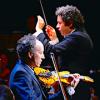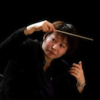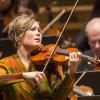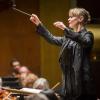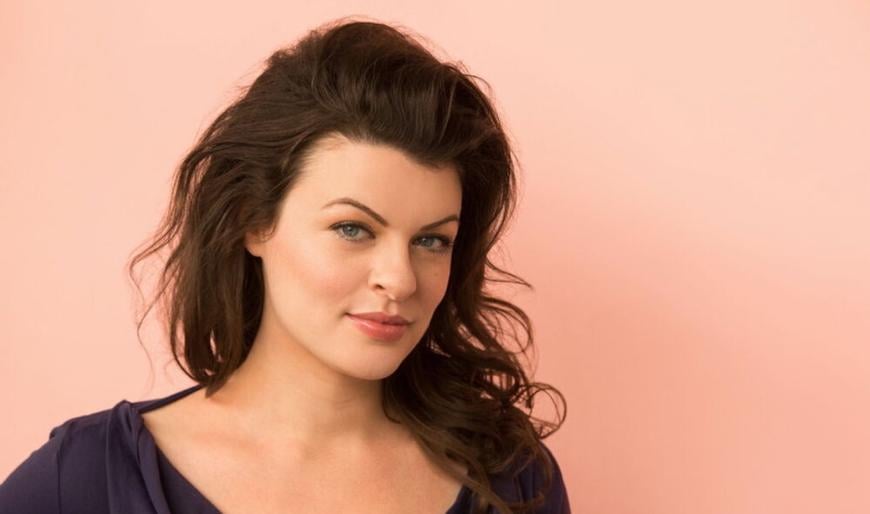
Surveying the wreckage that the pandemic had wrought upon the Los Angeles Philharmonic’s 2020 and 2021 calendars is not for the faint of heart. Look what we’ve missed — a revival of Esa-Pekka Salonen’s Tristan Project; Michael Tilson Thomas leading Berlioz’s complete Romeo and Juliet; the launch of the Pan-American Initiative; America: The Stories We Tell, a series that would have included the revised John Adams opera Girls of the Golden West; Stephen Sondheim’s Sunday in The Park With George; Thomas Adès’s complete Dante ballet; Salome, another Gerald Barry takeoff on Oscar Wilde; the Seoul Festival; and so much more.
Some of these items will exist only in obsolete program brochures; others will be — and have been — salvaged, often where an LA Phil commission or co-commission is involved. One of the lucky survivors is Julia Adolphe’s new violin concerto, Woven Loom, Silver Spindle, originally scheduled for May 13–16 with Gustavo Dudamel set to lead the world premiere but pushed back to this past weekend.
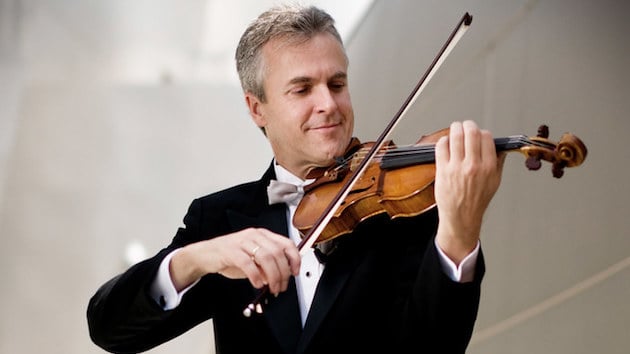
With Gustavo now tending to business at the Paris Opera, the world premiere — heard here on Sunday afternoon, Dec. 5 — was entrusted to Xian Zhang, the music director of the New Jersey Symphony. Concertmaster Martin Chalifour remained in place as the soloist. Some things, at least, are stable.
“Spinning wheels and looms have long been associated with creativity, motherhood, and the passage of time,” writes Adolphe. “[The piece] strives to evoke the intricate and methodical nature of creative work, the delicacy and strength required of motherhood, and the eternal, fleeting, cyclical nature of time.”
That translates into a 20-minute concerto in three distinct movements where after the violin opens with pizzicato strumming, the solo line settles into recitative over grand orchestral writing lightly salted with percussion. The overall sonic picture is peaceful yet quizzical at first, growing more anguished and dissonant in the second movement, returning to something resembling the earlier state before subsiding to an unaccompanied solo violin. The piece never really shakes off the broad pacing established at the start; sometimes the languid colorings reminded me of the soundscapes of Tōru Takemitsu. Chalifour’s playing gleamed brightly in the Walt Disney Concert Hall acoustic; you could say that his tone was silvery, apropos Adolphe’s title.
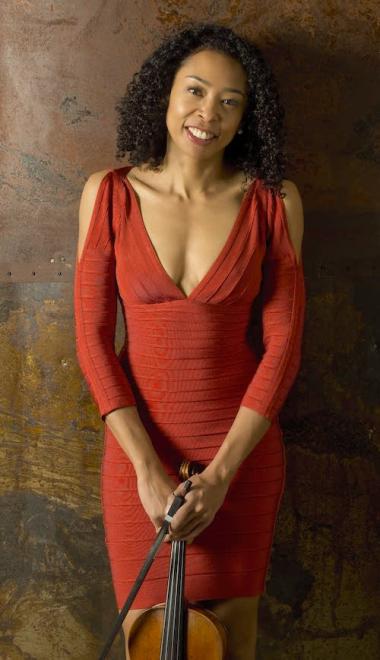
Zhang brought along another newish work called Primal Message by composer/violist Nokuthula Endo Ngwenyama, a Los Angeles native whose name betrays her mixed Zimbabwean-Japanese heritage. There are versions for string quintet and a small string orchestra that can be seen on YouTube, but the one for harp, percussion, and full strings heard at Disney Hall changes the piece’s complexion and thrust tremendously. Now it is a lush orchestral showpiece as cymbals crash, the harp swoops, and a tinkling celesta and tapped chimes add more colors.
Ngwenyama says this work was triggered by thoughts of astronomers like Francis Drake and Carl Sagan sending messages to other possible civilizations on what we on Earth are about. If so, it’s pretty much a positive outreach to the universe wrapped in language veering close to that of American cinema with a bit of Asian flavoring early on. Zhang viscerally believes in the piece — she gave the premiere of this orchestration in Detroit last year — and she powered through it urgently with the Philharmonic.
Judging from Zhang’s extremely animated physical conducting in the two new pieces, it was easy to predict how Beethoven’s Symphony No. 7 would turn out in the second half of the afternoon. You guessed it: It was fast, furious, even rowdy, shorn of repeats so that nothing would impede the forward surge of the rhetoric. Granted, there have been more irresistibly rhythmic approaches than this, but the elemental violence in Beethoven’s Seventh was given its full head — and the LA Phil sailed unanimously along with these gale-force winds.


